Almendra - Retrospectiva 1968 72
Table of Contents
Download
Filename: almendra-retrospectiva-1968-72.rar- MP3 size: 93.6 mb
- FLAC size: 516 mb
Tracks
| Track | Duration | Preview |
|---|---|---|
| A Estos Hombres Tristes | ||
| Que El Viento Borro Tus Manos | ||
| Ana No Duerme | ||
| Laura Va | ||
| Fermin | ||
| Figuracion | ||
| Gabinetes Espaciales | ||
| Muchacha (Ojos De Papel) | ||
| Tema De Pototo (Para Saber Como Es La Soledad) | ||
| Hoy Todo El Hielo En La Ciudad | ||
| Plegaria Para Un Niño Dormido | ||
| Hermano Perro |
Images




Catalog Numbers
TMS 40123Labels
RCA VictorListen online
- écouter en ligne
- escuchar en línea
- online luisteren
- kuunnella verkossa
- lytte på nettet
- lyssna på nätet
- ascolta in linea
- ouvir online
- online anhören
Formats
- Cassette
- Compilation
About Almendra
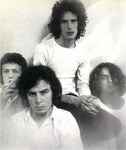
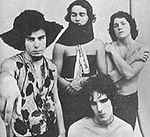
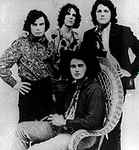
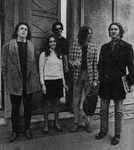
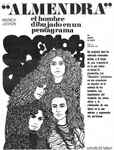
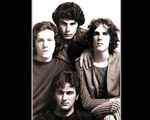
Almendra ("Almond") was one of the most important rock and roll groups from Buenos Aires, Argentina in the late 1960s. Originally called The Beatniks, it was born out of a fusion of two high schools bands, Los Sbirros and Los Larkins. Led by guitarist and lyricist , between 1968 and 1971 Almendra released a few singles and two albums that revolutionized the sound of Argentine rock for the remainder of the 20th century.
By 1967 the formation that would become Almendra, (Drums), (Vocals), Santiago Novoa (Keyboards), (Bass) and (Guitar) was ready, but Rodolfo was drafted into military service and the band sat out for the rest of the year. During that time 's La Balsa, played by , became a massive hit, paving the way for Argentine Rock. The same year, upon hearing the news of the death of a friend, Spientta composed Tema de Pototo, song which would later spearhead the group's ascend to fame. Eventually he would learn that his friend wasn't dead.
On march 68 Spinetta bought a guitar and the band rigorous practice sessions, prompting Novoa to leave the band. They would later change go through different names, ultimately landing on Almendra.
In 1968, upon being noticed by a Talent chaser Almendra would release their first single, Tema de Pototo / El Mundo Entre las Manos. Their second live show at Teatro del Globo was recorded and released on 2004 by Pagina12
In 1969 the group would release Hoy Todo Hielo La Ciudad / Campos Verdes and Tema de Pototo / Final. "Final" was meant to be the closing song of Almendra, but wasn't due to time constraints on the LP.
Between 1969 and 1970 they recorded and released Almendra. The album received mixed reviews, which caused Spinetta to distrust the media.
Almendra was followed by an abortive attempt to compose an Opera Rock with most big players of the era, the project failed due to the group's abandonment of their rigorous practice sessions. This would be the beginning of the end for the group as the members began to disagree on what musical direction to take the band. That same year they released another self-titled album, known as Almendra II. Soon after the band broke up, at the zenith of their fame. However, Edelmiro pointed out during an interview, "Almendra no se divide, se multiplica" (Almendra does not divide, it multiplies).
Each member would form a band of their own. Spinetta tried to start a group called Torax with Molinari, however, it failed and he traveled to Europe and composed a soloist album, to return later and form . Meanwhile Molinari would start and Emilio Del Guercio and Rodolfo Garcia .
Almendra would reunite on 1979 and play on various shows, the unexpected appeal of the band led them to release the live Albums Almendra en Obras I and II their third studio album, El Valle Interior in 1980. However the group broke up again due to differences between Spinetta and Del Guercio.
On 2004 Magazine Pagina/12 released an Almendra 2 CD special containing Almendra en Obras I y II and Almendra En Vivo en Treatro del Globo
Almendra would have one last reunion in 2009 when Spinetta he played with in the concert Spinetta y las Bandas Eternas ("Spinetta and the Eternal Bands")
Members
- Edelmiro Molinari
- Rodolfo Garcia
- Emilio Del Guercio
- Luis Alberto Spinetta